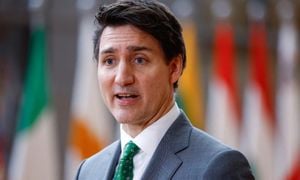French Minister for Europe and Foreign Affairs, Jean-Noël Barrot, confirmed during interviews on February 25 the upcoming inter-ministerial council dedicated to immigration control, scheduled for February 26. This meeting follows the recent Mulhouse attack, where a suspect critically injured municipal police officers and killed one individual. Barrot asserted the importance of the council's timing, stating it would be under close scrutiny following these tragic events.
The Mulhouse incident, which has been classified as terrorist activity by President Emmanuel Macron, is raising questions about France's immigration policies. The suspect, reportedly under Obligation to Leave French Territory (OQTF), had been refused deportation by Algeria ten times, highlighting significant gaps in international cooperation. Barrot noted, "Des mesures fortes... Il y en a d'autres où, au contraire, il nous faut des mesures d'accompagnement," emphasizing the need for decisive actions against countries unwilling to accept their nationals.
Meanwhile, the council's discussions will occur against the backdrop of rising tensions around immigration and the preparedness of law enforcement. Barrot's move reflects broader resistance within the government, including the sentiments expressed by Bruno Retailleau, who placed blame on Algeria for its lack of collaboration.
On another front, Barrot addressed the looming shutdown of French television station C8, stating emphatically, "L'Arcom n'a pas fermé C8." The channel is facing closure due to the withdrawal of its frequency access mandated by the Regulatory Authority for Audiovisual and Digital Communication (Arcom). Although Barrot acknowledged the possibility of the station’s closure stemming from non-renewal of its frequency, he specified, "C'est-à-dire l'accès au domaine public, hertzien de l'État, mais en aucun cas de fermer C8."
Despite acknowledging the legal frameworks necessitating Arcom’s decisions, Barrot expressed concerns about the impact of such regulatory actions on employment—indicating potential job losses for 400 coworkers associated with C8. The minister elaborated, "Si nous avons toutes ces règles et ces cahiers des charges qui permettent de garantir le pluralisme... c'est pour que toutes les opinions, toutes les expressions puissent avoir lieu dans notre pays."
The conversation then shifted to the controversial meeting of Jordan Bardella, leader of the far-right National Rally party, with Israeli Minister for Diaspora Affairs, Amichai Chikli, at a conservative convention. Bardella’s engagement with Chikli occurred against the backdrop of Chikli's recent call to shut the French consulate in Jerusalem, accusing it of supporting terrorism. Barrot, critiquing Bardella's actions, stated this meeting was perceived as a "grande leçon de patriotisme (et de diplomatie)," underscoring the delicate balance of international diplomatic relations and local political reputations.
This North American meeting raised eyebrows back home, as it touches on sensitive issues such as anti-Semitism and Islamism. The exchange centered around various subjects, including security cooperation against extremism and the broader political dialogue between France and Israel. Chikli's strong position, calling for reaction against the French consulate's activities, poses fresh challenges to the French administration and its foreign policy stance.
These intertwined issues reflect the tumultuous atmosphere surrounding immigration, media regulation, and international relations within the framework of contemporary French politics. With the week’s anticipated discussions on immigration and scrutiny of media policies, Barrot faces the uphill task of ensuring efficient governance amid complex sociopolitical dynamics.



